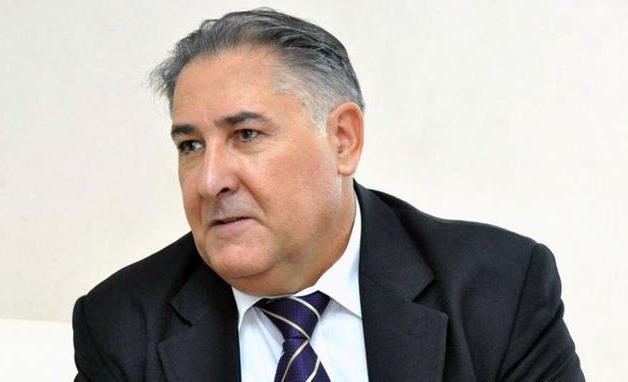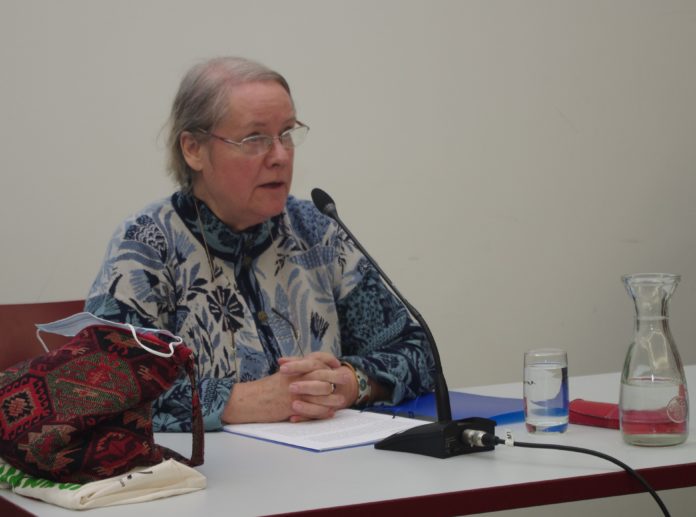
Kamal Sido
Where Does Germany Stand?
by Muriel Mirak-Weissbach
BERLIN, OCTOBER 15, 2020 — Since the renewed outbreak of war in Nagorno-Karabakh, efforts have been underway on an international level to stop the fighting, and lay the basis for a political solution. The central institution involved has been the Minsk Group, which came together in 1994 at the Organization for Security and Cooperation in Europe (OSCE) Budapest summit. Its permanent members are Belarus, Germany, Italy, Switzerland, Finland, Turkey, Armenia and Azerbaijan. Co-chairmen are the Russian Federation, the United States and France.
In Germany, Armenian organizations mobilized and leading members of the Bundestag (Parliament) issued statements condemning the violence and calling for an immediate ceasefire.
On October 12, the Society for Threatened Peoples sponsored a virtual seminar that brought together experts to review the history of the conflict and explore proposals towards a durable solution. The topic of the meeting was “War again in the South Caucasus: Armenia, Azerbaijan and NATO Member Turkey.”
Kamal Sido, a Syrian-Kurdish historian living in Germany and working with the STP, moderated the event, which drew the participation of dozens of people from across Europe. Prof. Tessa Hofmann, a leading genocide researcher and human rights activist, opened the discussion with a thorough overview of the history of the complicated conflict, from the late Middle Ages, through the period of Russian domination, up to the first World War and beyond. She reviewed the outbreaks of violence, from the Shushi massacres of 1920 to the massacres in 1988-1990. She reported on how, following the collapse of the Soviet Union and the independence of Karabakh, Azeri interior ministry troops forced the resettlement of between 5,000 and 32,000 people in 23 villages. There followed the undeclared war of December 1991 to May 1994, and the establishment of the 1994 ceasefire line. Since then, there have been repeated, unsuccessful efforts by Azerbaijan to reconquer territory, in 2016 and now.

Prof. Tessa Hofmann
The main reason for the continuing conflict, Hofmann said, lies in the fact that Karabakh has been left out of the international peace negotiations, a point she would return to later. A contributing factor to the periodic renewal of conflict is the ready supply of weapons to both sides; Russia arms both Azerbaijan and Armenia, while Israel and Turkey are delivering modern weaponry to Baku.
Participants in the webinar wanted to know facts about the situation, who supplies weapons and why; what role religion plays; how Iran figures in the regional geopolitical equation. But first and foremost, it was the role of Turkey that dominated the discussion.
Hofmann explained Turkey’s self-conception as a protector state of Azerbaijan, and cited the formula, “one nation, two states” that Ankara uses to describe the relationship between the two nations. Turkey’s self-conceived role does not end there, but extends to protector of Muslims throughout the region. Here she cited ongoing strife around relations with Greece, Israel, Libya and Syria, and confirmed reports of Turkish deployment of up to 9000 ethnic mercenaries recruited from among Syrian rebels, to Baku. In this light, Turkey exerts a greater influence on Azerbaijan than Russia does. Hofmann also pointed to the subjective factor of “hate potential,” noting how Turkey views Armenia as “the greatest threat to peace and calm in the region;” and, if 63 percent of Armenians see Azerbaijan as the greatest enemy, a whopping 94 percent of Azerbaijanis consider Armenia their greatest enemy.
From the problem, to the search for solutions: If the Russians have indeed succeeded in brokering a ceasefire, albeit fragile, and setting the stage for a new round of negotiations, how big is Moscow’s influence? Russia does not consider itself Armenia’s protector, in the way Turkey does vis-a-vis Azerbaijan, but has always been closer to Yerevan in crucial situations. This explains why Russian-speaking Armenians, even those who feel close to America, tend to trust Russia more. Ruling out the possibility that Russia would ever intervene militarily on Armenia’s side — unless Armenian territory were attacked — Hofmann addressed the possibility of a political solution.
If for 30 years, nay, for 100 years, there has been no solution, she said, this does not have to do with the negotiations per se, but with the very nature of the problem. “It is a matter of squaring the circle,” she said.